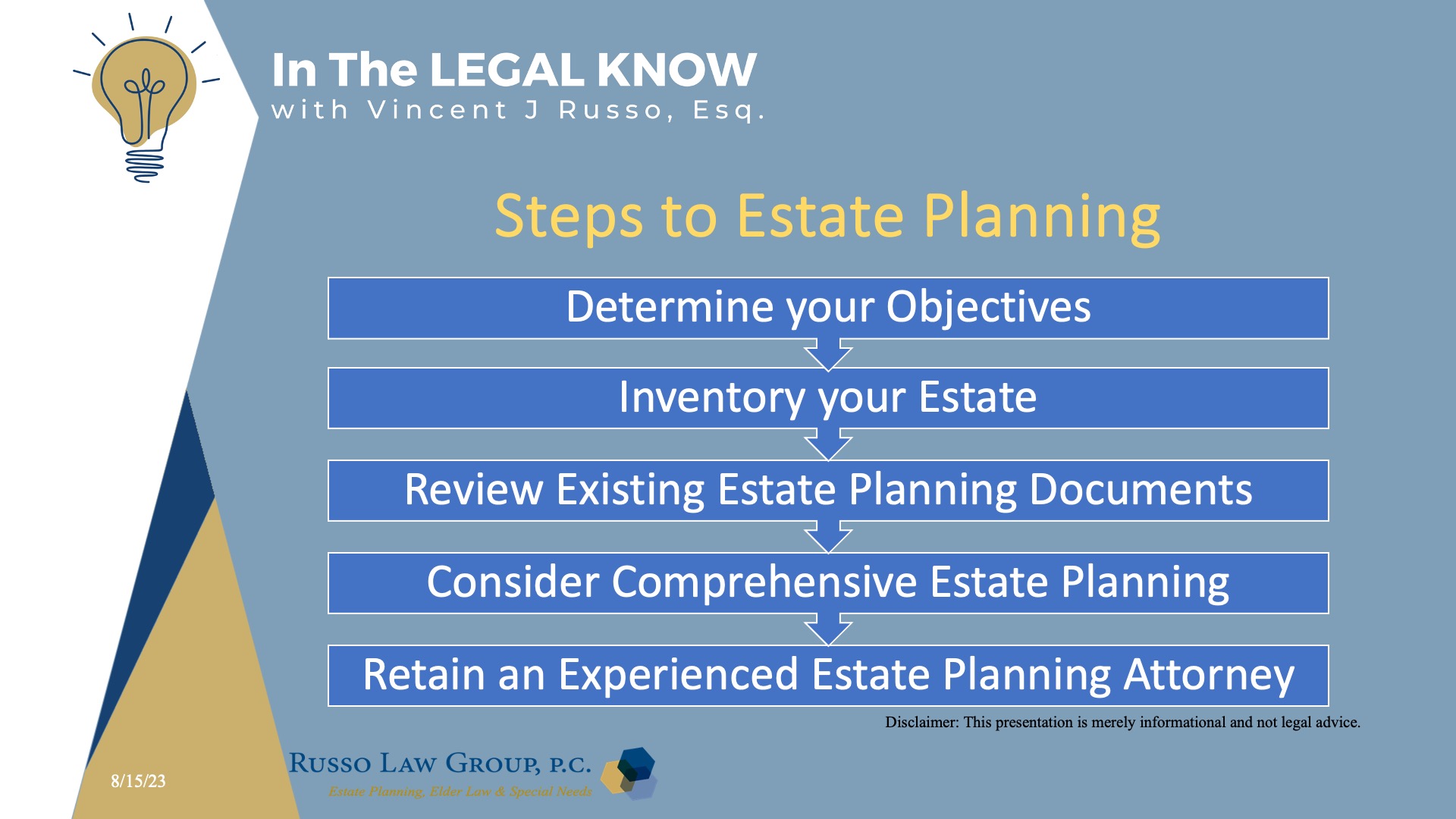This originally aired on the Catholic Faith Network’s show CFN Live: https://youtu.be/_37V4R4aXYo Today, many people…
This originally aired on the Catholic Faith Network’s show CFN Live: https://youtu.be/rrEF1DWs24o
How does one approach Estate Planning?
There are several steps one should take when approaching Estate Planning:

What is Transactional Estate Planning?
Transactional Estate Planning is when someone calls our office and asks us to implement a single act or transaction. We receive these calls on a regular basis.
For example, the caller is interested in transferring the deed to her house to her daughter or the individual is looking for a “simple will”. We are thrilled that she is interested in estate planning.
At the same time, there is nothing wrong here with the individual’s objective as this is the first step one in the estate planning process – determining your objectives.
I liken estate planning to a puzzle. There are many pieces to the puzzle which creates a picture. One must first make sure they have all the puzzle pieces and that they fit together. One puzzle piece does not create a picture and as the song goes – “Every Picture Tells a Story”.
What are the pitfalls?
Let’s start with the request to transfer the deed from mother to daughter. Is she an only child, how are the other children being provided for when mom passes? Does mom realize that she will lose control over the house? She may lose her real estate exemption. The daughter can sell the house without the mother’s consent or take a mortgage against the house. The gift may cause significant capital gains taxes when the house is sold after the mother passes.
Let’s tackle the Simple Will request. Without knowing the individual’s family situation (family relationships, second marriages), their health (and that of their loved ones) and financial situation, it is like calling a doctor and asking to have your appendix taken out because you have a pain in your abdomen. Can you imagine a doctor saying come right into my office and I will remove your appendix with no blood test, Scan or an MRI. The same goes for estate planning.
Is there a better way to approach Estate Planning?
Yes, remember the puzzle pieces. The estate planner needs to understand your entire situation. Listen to your objectives. Use their experience and knowledge in providing you with options and making sure it is part of a comprehensive estate plan which protects you, your family, and your assets.
For example, with the deed request, Mom may want to consider transferring the deed while retaining a life estate or transferring the home to a Medicaid Asset Protection Trust.
As to the Will, does mom want to leave the assets in a more protective way for their children (by utilizing trusts), does mom need to consider estate tax planning or long term care planning. Is there a family member with special needs that needs to maintain government benefits. Does mom have advance directives for health care and financial decision making? Now, we are talking about implementing a comprehensive estate plan.
We hope you found this article helpful. Contact our office today at 1 (800) 680-1717 and schedule an appointment to discuss what makes sense for you and your loved ones.




Comments (0)